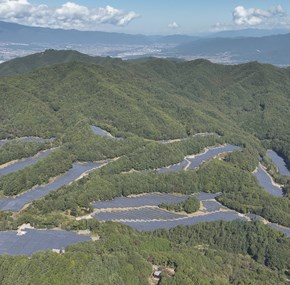What EU’s new renewable target will mean for solar energy
On the face of it, the EU’s recent decision to increase its 2030 target for renewable energy production to 32% (from 27%) puts additional pressure on the slowest member states to develop their renewable energy production.
But according to Andreas Ditlev Duckert, Chief Finance Officer at Obton, those member states lagging behind need not despair. The opportunities for developing their renewable energy production have never been better or cheaper.
- With the price of PV modules continuing to drop and easier access to relatively cheap credit, solar energy prices are becoming more and more competitive. In other words, cheap and reliable technology for renewable energy is already available for those European member states striving to reach their targets, he says.
A classic example of renewable energy prices beating conventional energy is the strike price for the Hinkley Point C nuclear power point. The operator, EDF, is guaranteed a strike price of £92.50/MWh. In comparison, solar projects in 2014 auctions were awarded a strike price of £79.23/MWh, and the prices have since continued to drop.
2018 also saw the first renewable energy projects that were completely without government subsidies. The Norwegian power provider, Statkraft, signed a 15-year PPA for power from a 170 MW solar park in Alcalá de Guadaíra, Andalusia, southern Spain.
- The conditions have never been better for fundamentally changing the European energy system. The technologies are ready, and studies have shown that an energy system based entirely on renewable energy is not only feasible – it is also more cost-effective. As a result, there is every reason for the EU to increase its ambitions, says Andres Ditlev Duckert, referring to a 2017 study by the Lappeenranta University of Technology (LUT) and the Energy Watch Group (EWG).
A boost to solar energy
The increased target of 32% renewable energy was adopted by the European Parliament in November 2018. This target is part of the Renewable Energy Directive, which is also part of the EU’s Clean Energy For All Europeans package.
Member states have until the end of 2020 to implement the new target into national law.
The EU’s long-term goal is to reduce greenhouse gas emissions by 80-95% before 2050; and solar energy has the potential to help reach that goal.
- We are just beginning to unlock the potential for solar energy. Most experts agree that solar energy will dominate power generation in the long term because of its low cost and easy deployment, says Andreas Ditlev Duckert.
The 2017 study by the Lappeenranta University of Technology (LUT) and the Energy Watch Group (EWG) found that solar is set to become the dominant source of energy by 2050. This is due to the further cost reductions and increased demand resulting from the electrification of the energy system. The study was modelled on having a global energy system based on renewable energy by 2050, where solar PV with battery storage had the potential to account for 69% of energy production
- Although wind power is still marginally cheaper than solar power, increased efficiency and falling costs will make it the dominant renewable energy source of the future. Furthermore, whereas wind energy development is hampered by planning issues and public protests, solar PV facilities face fewer obstacles and have the advantage that projects can be fitted onto rooftops or alongside existing infrastructure, says Andreas Ditlev Duckert
Threats to solar deployment
Despite the falling costs of solar energy, government support is still crucial to unlock solar’s potential as Europe’s clean energy form of the future.
- Solar will continue to become more and more affordable in the EU. But to unlock the potential and make the transition as cost-effective to consumers as possible, we need transparent and stable support schemes, he says.






